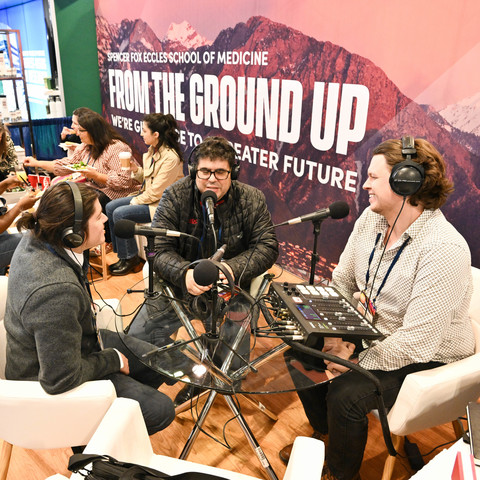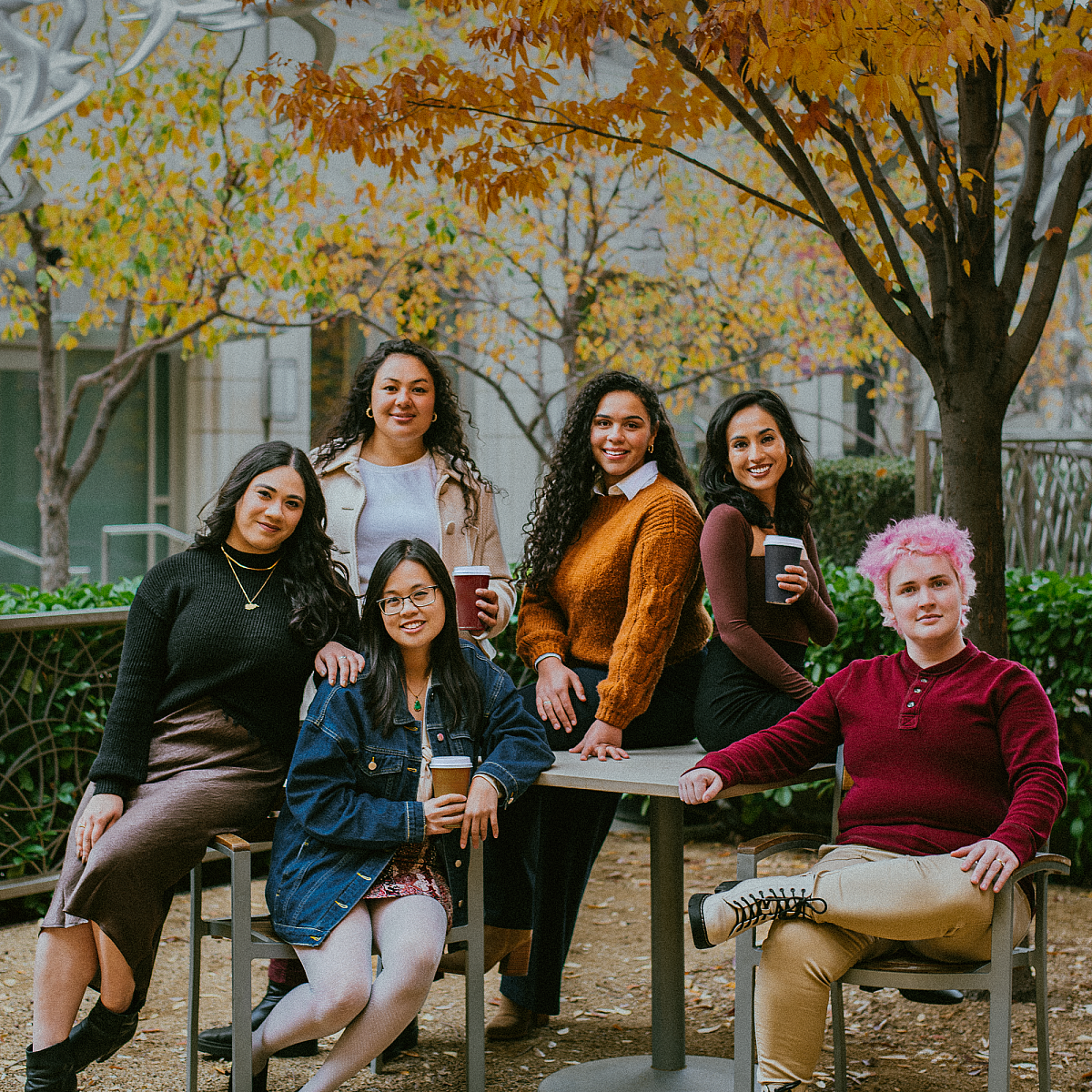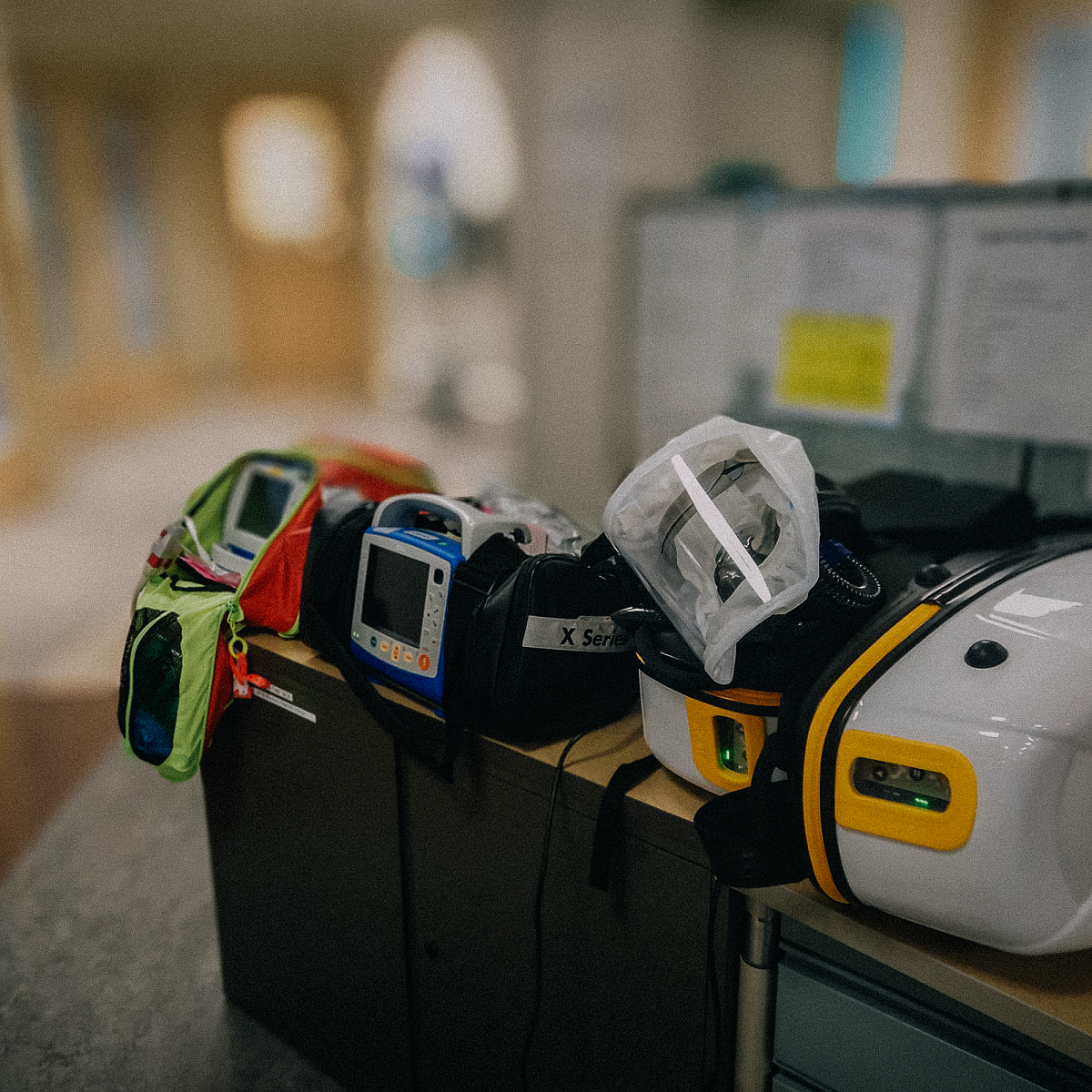
Episode Transcript
Mitch: The Scope is here at the AAMC Learn Serve Lead 2022 conference, and we are having conversations about how we can build from the ground up when it comes to medicine, medical care, and academics when it comes to health.
And so, in the effort to continue these types of conversations that we are loving having here at the floor, we're joined by Dr. Jose Rodriguez. He's the Associate Vice President for Equity, Diversity, and Inclusion for University of Utah Health, and a tenured professor for the Department of Family and Preventative Medicine.
As well as a second-year medical student from U of U Health, Moroni Lopez, who is one of two student representatives here at AAMC.
So when it comes to medical education, like how we're training our future doctors, we have a student here. You're in your second year. You're going to be deciding residency sooner than you'll realize, right?
Moroni: Yep.
Mitch: What are some of the ways that we can start to approach this differently, that we can start to change the way we do things?
Dr. Rodriguez: When we think about change, we've got to think a little bit about where we've been. And Moroni here is part of one of the most diverse classes in the history of University of Utah School of Medicine.
Mitch: Wow.
Dr. Rodriguez: And the class that's behind him is actually more diverse than the class that he's in.
Mitch: Oh, wow.
Dr. Rodriguez: And we're making strides in this area in a way that hasn't been seen before. Now, as a diversity officer, I would say that the strides are wonderful, but that we cannot rest on our laurels. Moroni, why don't you tell us a little bit about how you see the diversity of your class and how you see it helping your education.
Moroni: Yeah, I think as the curriculum's been moving along, a lot of the education that is designed for us in our preclinical years is meant to be a lot of team-based learning, a lot of problem-based learning, a lot of collaborating. And I think being able to make sure that within each one of these teams we have diverse thought, we have diverse viewpoints, it' crucial.
I think even when we go through and talk about a patient case, there are some things that I might pick up on, whether the patient is mentioned as being an immigrant, things that have to do with their social determinants of health that I might pick up on because of my experiences, or that my other classmates might have picked up on because of their diverse experiences, that the other members of the team just might not have thought of.
And I think being able to do that and integrate that into every part of our core curriculum as we move forward in our medical education is important so that every one of these future doctors can not just think, "Okay, there's a case. This is what the presentation of a disease looks like," but they can expand it to a more comprehensive and holistic view of a patient and how to best help them.
Dr. Rodriguez: You're talking about how people see each other, right? And I think that's an important part, and I think that's really what makes the diversity of medical school classes important.
Because as you get through this . . . I don't want to call it a traumatic experience, but it certainly is difficult. And for a lot of people, it's the hardest thing that you've ever done in your lives. As you go through this, you bond to your classmates in a different way than you would've bonded to your classmates in, say, undergrad or in high school.
And the way you see your classmates is how you'll end up seeing your patients. And so the more diversity that there is that's visible in your class, the better it's going to be for all of the participants.
We're here at AAMC, and yesterday we heard from Professor Cornel West, who I thought was magnificent in his delivery of the messages. And one of the things that he said that'll always stick with me is he said, "I've got to learn how to love your crooked self with my crooked heart." And I think that's a beautiful quote, because what it recognizes is that in all of our difference, we have some things that make us exactly the same.
And another AAMC lesson that I've learned recently is . . . Last year they had the author of the book "The Sum of Us." That's professor McGhee. And that book talks about how anti-black racism is bad for everybody, including those of us who do not identify as black.
I read that book after she came, and I have to tell you that it struck me how they talked about some of the betrayals that have happened in places that are considered to be very religious.
And one of the things that happened many, many years ago that nobody has the blame for is that we have dismissed a biblical teaching. Now, I know this isn’t a religious space, but I want to say this because it's so important.
Lots of Christian churches were complicit in things like racism, slavery, the Holocaust, Jim Crow laws, all of these things, and the reason was because of a fundamental disconnect. And the disconnect was that they took what is a fundamental and founding principle of their religion and ignored it, and that is the image of God, that all of us as humans are in the image of God.
I think, "My goodness, that seems so religious." But what it says to me in a non-religious sense is that we are all part of the same family, and until we can figure out how to live together as a family, we're not going to get better at eliminating health disparities. We're not going to get better at making education accessible to all.
And so I think about my career and I think about what you're going to do. Why don't you share with us, Moroni, some of the things that you're planning on doing with your career?
Moroni: Yeah. So right now what I'm planning on is I want to become a family medicine doctor, and I want to work in a clinic that predominantly has a lot of underrepresented populations within it.
I grew up myself as an immigrant here in Salt Lake Valley, and my family didn't have access to health care for the longest time just because we couldn't afford it. And so I think for me to be able to turn around and provide a lot of this access to a lot of the families that are where my family was many years ago is very crucial to my personal mission and to a lot of what I stand for when I think of moving forward as a physician.
Dr. Rodriguez: That, my friend, is music to my ears. As a family physician, that makes me so happy. And that is actually one of the things that I've found most fulfilling in my job, is that I still can see patients at Redwood Health Center where I'm an Associate Medical Director, but I also work with a lot of new American populations.
So, as you can imagine, the largest population that I see is the Latino population, and I don't really have to speak English ever at work because my MAs, my front desk, the other providers I work with are all bilingual in Spanish. So it creates community, and it creates a space where our patients feel welcome. And I think we need to figure out how we can get you to be at Redwood for your longitudinal integrated curriculum.
Moroni: That's the key.
Mitch: Well, I had a question, I guess. When I hear you two talking about this idea of community, of seeing one another as human beings, etc., how does representation play into that? Why is it so important that we have those different types of ideas when it comes to providing better care, when it comes to providing better education? How does representation get involved into the community of medicine as a larger goal?
Moroni: For me, I think bringing it back to this conference, our leadership speaker for today, he was talking to us about you can only be what you can see. And for me, that's been playing very true.
I don't know where I got the idea . . . well, I do . . . of becoming a doctor because nobody in my family is a physician. But I knew that I wanted to serve my community and I wanted to really do things that would change the future of my community. And I was very passionate about health care and I couldn't see Latino physicians in my community, right?
And I think to that point of the representation, I remember when I got accepted to the University of Utah, seeing Dr. Rodriguez for the first time on a Zoom call, because it was COVID still. I saw Rodriguez and I thought, "There is a Latino physician in my health system? This is amazing." And I've been trying to catch up with him ever since because I now see what I can be.
And I'm not saying he's the one that's telling me to become a family medicine physician, but it definitely helps to see someone who's taken those exact steps, who understands a lot of my background because he's been where I've been, but also he can show me how I can be a really good version of what I want to be.
Dr. Rodriguez: Well, thank you, Moroni. That's a nice thing to say.
I will tell you that you're absolutely right about you have to see it to be it. My parents are both Puerto Rican. They emigrated from the island just a few months, really, before I was born, and we went to this place in Upstate New York. But my mother and my father were adamant about making sure that we saw Latino physicians. So we didn't see one in our community. We had to drive a half an hour, 45 minutes to the only Cuban doctor around. So it was never a question of if I could do it because my providers were Latino.
And this is an important point because I think that's why even in administrative work and even in academic medicine, those of us who identify as underrepresented or as historically excluded, we feel obligated to be in the community, to be those beacons so that people can come. So thank you for sharing that.
The other reason why diversity matters is when I think about what skill set you need to graduate from medicine in, you need to have the skill set to be able to see lots and lots of different patients.
Mitch: Oh, sure. Yeah.
Dr. Rodriguez: And I have to tell you that we understood that the population was changing before Moroni was born. All right? We knew this.
Moroni: You anticipated me.
Mitch: Yeah, you're quite young.
Dr. Rodriguez: For a long, long time. And the way we were going to do it is we were just going to teach the existing physicians to be culturally competent. But unfortunately, cultural competence has made us nicer doctors, but it has not done anything to address deficiencies, disparities, and inequities in health care.
But what does work and what there's evidence for is racial concordance, guys. When your physician, your provider looks like you, you are more likely to do what the provider says and to get the preventative services that you need. And that's huge, right?
So this is about making things fair. And so, as we move on, we're going to see lots of changes in the Supreme Court decisions. We're going to see lots of decisions on race and ethnicity and including it in admissions. The bottom line is that the value of having a diverse class doesn't change because of a Supreme Court decision, and we have an obligation as physicians and as leaders to work towards the elimination of inequities.
Moroni: Yeah. I think one more point, and it goes back to the Redwood Clinic, right? The physician is the leader of this health team, but when you have every single member of that health team also being able to identify and to connect with all your patients, you can actually streamline a lot of that as well, right? Because it's not the physician that's working with that patient 100% of the time. You're dealing with the entire health team.
And I think for me, it's . . . I mean, also seeing my mother who at 50 years old went back, got her nursing degree, and now she's working in that setting, right? In all of the layers of that health team, to be able to know that there are bilingual and multicultural people, and diverse thoughts within an entire health team helps both provide that security, I think, for the patients, for those families, and it provides that extra foresight sometimes as to how to really help and work with a patient that might be culturally different from what we're used to, from what we're taught maybe in the books of medicine, and things like that.
Dr. Rodriguez: I couldn't agree with you more. I'm very much excited about what the future can bring for us. Utah is changing and it's changing quickly, and the University of Utah has seen it and we're changing as well. And I think what we'll see in the future is we'll see more diversity of our physician providers, but we will also see it in other specialties.
As you know, in our School of Medicine, we have the number two public program for physician assistants in the country. What you might not know is that it is by far the most diverse class of physician assistants outside of a historically black school.
Mitch: Oh, wow.
Dr. Rodriguez: And so you've got to think about that out loud. We're in Utah, we're not known for our diversity, yet this is what's happening. And at a time when physician assistant education is becoming actually less diverse as far as students, our program is changing, and that's in the School of Medicine. And because they work so closely with our MD program, that's changing as well. So it's an exciting time to be here. And being here with students like Moroni makes me happy.
Mitch: I couldn't agree more, having had these amazing conversations with the people who've come.
Moroni, I'm so excited to hear the kinds of things that you're saying and to hear how . . . I'm looking forward to seeing how you can help change medicine.
Moroni, Dr. Rodriguez, thank you so much for joining us here.
Again, this is The Scope at the AAMC 2022 Learn Serve Lead conference, and we are having discussions about how to improve medicine from the ground up. If you would like to hear more of our conversations, you can visit the website, uofuhealth.org/aamc22, or visit thescoperadio.com. Thank you guys.
Dr. Rodriguez: Thank you.
Moroni: Thank you.
The Scope Presents
Listen wherever you podcast
SUBSCRIBE TO THE SCOPE




